Search Results
Showing results 81 to 100 of 252
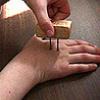
Our Sense of Touch: Two-Point Discrimination
Source Institutions
In this activity, learners investigate the touch sensory system and discover how to plan and carry out their own experiments.
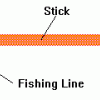
Become a Neurologist: Detective Threshold
Source Institutions
In this neuroscience activity (4th activity on the page), learners make their own set of Von Frey hairs to test detection thresholds.

Finger Reading
Source Institutions
In this activity (10th activity on the page) about the sense of touch, learners make Braille letters out of cork or cardboard and map pins.
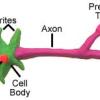
The Model Neuron
Source Institutions
In this activity, learners create a model of a neuron by using colored clay or play dough. Learners use diagrams to build the model and then label the parts on a piece of paper.

Chemical Breath
Source Institutions
This is a chemistry lab activity about solutions (page 7 of the PDF). Learners see firsthand how chemicals in a solution can combine to form an entirely different substance.
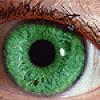
Our Sense of Sight: Eye Anatomy and Function
Source Institutions
In this activity, learners investigate the sense of sight and develop and conduct their own experiments.

Pulse of Life: Measure Your Pulse
Source Institutions
In this activity, learners take their own pulse and explore how heart rate is affected by various activities.
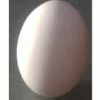
A Stand-up Egg
Source Institutions
In this science trick, learners get an egg to stand-up on its long-axis vertical to a table's top.

Size and Distance
Source Institutions
In this activity about depth perception, learners create an optical illusion in a shoe box.
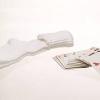
Don't Be Nerve-ous
Source Institutions
In this activity, learners discover a brain process called habituation.
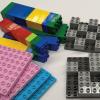
Antibody Builder
Source Institutions
Learners use Duplo bricks to build antibodies with shapes that match model viruses.
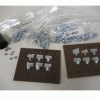
Macro-Microarray
Source Institutions
In this activity, learners explore the "nuts and bolts" of gene chips.
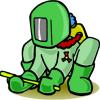
Hanford at the Half-Life Radiation Calculator
Source Institutions
This quiz lets you estimate your annual radiation exposure.

Enzyme Action
Source Institutions
In this activity that can be used as a lab or demonstration, learners use Lactaid® and lactose to demonstrate the concept of enzyme action.
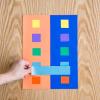
Color Contrast
Source Institutions
Do you have a hard time matching paint swatches with your furniture? When you consider human perception, color is context dependent.

Proprioception: Wiggle where you're at
Source Institutions
We're told from a young age that we have 5 senses, but we have many more. One of which is our awareness of our own body part's orientation and position.
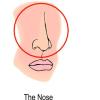
Smell Detective
Source Institutions
In this activity about olfaction (8th activity on the page), learners smell 10 different items with different odors. Then they try to identify the smells when they are mixed together.
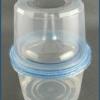
Mosquito Life Cycle
Source Institutions
In this activity, learners build a plastic emergence chamber (or use purchased "mini mosquito breeder") to observe and analyze the mosquito life cycle.

Tasty Buds
Source Institutions
In this activity (1st activity on the page), learners explore their sense of taste and the structure of the tongue by taste-testing various foods.

Half Full or Half Empty
Source Institutions
In this activity (12th activity on the page), learners conduct an experiment to demonstrate how muscles are constantly feeding information to the brain about what they are doing.
